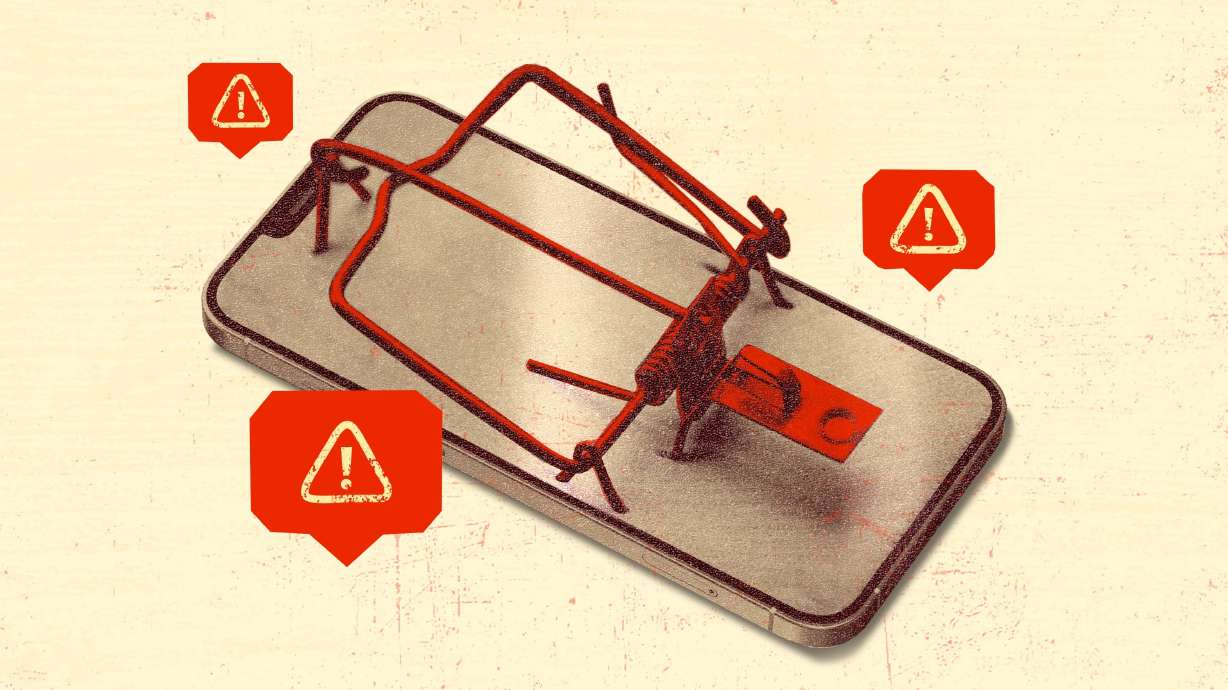Estimated read time: 4-5 minutes
- Half of U.S. parents believe banning TikTok would enhance children's online safety.
- Surveys show 86% of parents support requiring parental consent for minors on social media.
- Concerns include TikTok's inappropriate content, addictive nature and influence on behavior.
SALT LAKE CITY — The U.S. Supreme Court is set to hear arguments on whether a law that aims to ban TikTok and is set to take effect Jan. 19 holds up. A new pair of surveys finds half of U.S. parents agree such a ban would make kids safer online, while even more support legislative protection from social media for kids.
But just 3 in 10 parents support a blanket ban for all ages in the U.S. And 37% of TikTok users said they would try to circumvent a ban by using virtual private networks to access TikTok content. And 53% agreed that "banning TikTok could set a dangerous censoring precedent."
A similar 52% said such a ban "would unfairly punish American users and creators."
That's all according to polling for Security.org, which focuses on safety online and off. The company commissioned a pair of surveys to explore the intersection of children, safety and social media. The surveys each involved about 1,000 people who were recruited online to participate. One asked TikTok users and the other involved parents with minor children. Neither is nationally representative, but they are indicative of the range of feelings about the issue, according to the company.
And they're pretty interesting in part because the numbers vary quite a bit depending on what was asked and who would be affected. Among key findings:
- A quarter of parents consider TikTok the most dangerous social media platform for minors "due to inappropriate content and its influence on their behavior." Snapchat came in second on a list that included (in the order of the results) Discord, Twitter, Facebook, Instagram, Reddit, YouTube, WhatsApp and Twitch.
- The vast majority (86%) of parents support laws that make social media platforms obtain parental permission before allowing minor children to join.
- Nearly that many (84%) believe parents should have complete access to their children's social media accounts.
- Nine in 10 parents want a ban on collecting personal data from minors.
The polls were conducted in 2024 by the online polling platform Prolific, used by a lot of research organizations including major universities, said Corie Colliton, senior editor of industry research at Security.org.
She said her company "is committed to monitoring trends in digital security, including social media. We were very interested in learning about parents' concerns related to their children's use of TikTok and how the potential TikTok ban might impact Americans' sense of freedom and safety on the internet."
A legislative solution?
Colliton told Deseret News she was a bit surprised most parents weren't supportive of an all-out TikTok ban.
"I'm not sure if parents thought it is something they wanted to take care of without government intervention," she said, noting some parents feel strongly that parenting decisions should not be controlled by the government. At the same time, though, "it seems like a lot want help from legislators on this issue, maybe because it's so hard to monitor and stay on top of all the changes on social media. Maybe they feel they are not equipped."
The survey found that the most popular regulations to the parents, taken from a curated list of proposals, would be auto-setting minor accounts to the highest privacy settings (92%), a ban on collecting personal data (90%), requiring parental consent (86%), requiring schools to teach safe social media use and digital literacy (85%), complete parental access to minor children's accounts (84%) and curfew laws on social media for children under 18 (65%).
Also interesting, said Colliton, is how many people are "open to the idea of trying to get around the TikTok ban" if it occurs. She said the platform uses a "highly addictive algorithm and the short-form content is very appealing." She also noted that people do use technology such as VPNs to access media that's only available in the U.K. or Canada.
Challenges keeping kids safe
The survey report said what makes TikTok most dangerous after the inappropriate content (28%) and influence on behavior (22%) is that it's too addictive (20%). Far fewer cited privacy concerns (9%), false information (8%), predators and easy access to strangers (both 4%), difficult for parents to monitor (3%) and risk of cyberbullying (2%).
The list for Snapchat was very different. The parents said how hard it is to monitor kids on Snapchat was the leading danger (32%), followed by inappropriate content (21%), easier access to strangers (15%), predators (13%) and cyberbullying risk (8%). The other risks were cited by fewer than 4% of those surveyed.
Per the report, "Currently, 4 in 5 parents believe that social media use causes depression, anxiety and psychological distress in young people. A staggering 98% believe social networks are dangerous for children under 18 — a concern shared by medical professionals."
The report also suggests ways to protect kids online, including:
- Parents educating themselves about social media.
- Recognizing the unique needs of every child when it comes to navigating the internet.
- Establishing a family technology contract.
- Supervising children's use of social media.
- Working with extended family and friends to help counter peer pressure and envy.
- Watching for red flags.
- Teaching privacy and security.
- Practicing open communication with children.
- Knowing the latest social media trends.
- Offering offline activities as an alternative.










